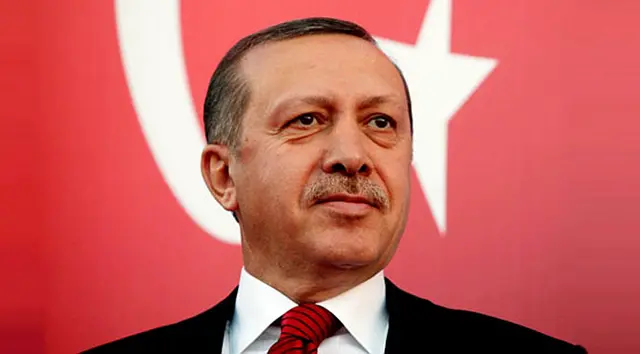Recep Tayyip Erdogan is now perhaps the most powerful man in the Middle East, but a no less controversial one.
He was credited for reviving the Turkish economy from the brink of collapse, but also opposed for leading the republic away from its long treasured values of secularism and democracy.
Born in Istanbul, Turkey’s largest city and a hub between the East and the West, Erdogan demonstrated his strong personality since the beginning of his political career. He earned a ten months’ sentence in 1999 for reciting a poem, an action that was considered inciting violence and religious or racial hatred.
But the incident only proved to have made a slight dent on Erdogan’s path to the top. He organized the Justice and Development Party (AKP) in 2001 and led the party to a landslide election victory in 2002.
As Erdogan ascended to power in 2003, he inherited a sluggish economy burdened with inflation and low confidence in the government. By implementing a host of macro-economic policies, Erdogan lifted the Turkish economy by 64 percent between 2002 and 2012, which translates to an impressive 3.6 percent annual increase over a ten-year span.
Erdogan was generously rewarded for delivering a prospering economy for Turkey, he went on to serve more than 11 years as the Turkish PM, the second longest in history.
After stepping down as the prime minister, the leader of the Turkish government, he ran successfully to become the Turkish President in 2014, a previously symbolic position that was redefined by Erdogan, who kept his powers despite the change in his title.
As he consolidated power, dissatisfaction among the society mounted. Some were alarmed by his pro-religious remarks while others were worried that democracy is giving away to authoritarian rule.
The concern is not unfounded. Over the years he was accused of controlling the media, tempering with election results, and shaking up courts to have the justice system on his side.
The controversial actions partially contributed to a coup d’état earlier this year, when some members of the Turkish military, the institution that was considered the guardian of secular values, temporarily seized control of parts of Istanbul while Erdogan was on vacation.
The coup was quickly quelled and Erdogan, in retaliation, purged thousands in the military and in the government.
But domestic challenges are not his only woes. Foreign pressure due to Erdogan’s assertive foreign policy is also taking a toll on the strongman.
Since the beginning of the Arab Spring that swept the Middle East since 2011, Erdogan has not been shy about forwarding Turkey’s agenda, especially after the opportunity to expand Turkey’s influence in the region became ripe with the protracted conflict in neighboring Syria.
As a firm supporter of the Syrian opposition, Erdogan hosted political groups inside Turkey and at times even turned a blind eye to insurgents using Turkey’s territory as their base.
The plan is simple, pit the armed opposition groups against the Kurds who have long dreamed of independence from Turkey, and create a “safe zone” along the Turkey-Syria border oversaw by Ankara.
However, five years on, stability in southern Turkey deteriorated, partly because of the large influx of Syrian refugees who crossed its porous land border, and also because the presence of armed groups in the region.
Since 2015, terror attacks have struck multiple cities across Turkey, and kidnapped for foreigners, including journalists were also reported in areas that are known to have militia activities.
As 2016 is nearing its end, Turkey’s fate under Erdogan is all the more opaque. There is no sign that the leader has any mind to reverse his past policies, but what that will mean for Turkey is still a big question mark.
(APD)
 简体中文
简体中文





